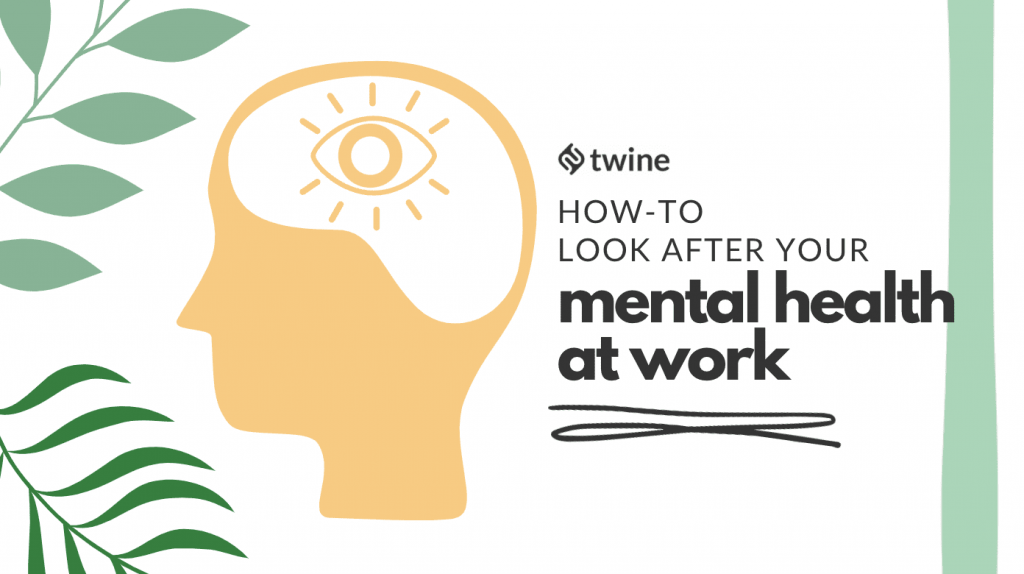
For freelancers, the workplace can be a lonely place. You never know who you will meet, or work with, on any given day or week. This is why it’s essential to make time for yourself, and your mental health, at work.
In this article, we’ll discuss 10 ways that you can look after your mental health when working as a freelancer – from making sure you’re not overworking, to finding a workspace to call your own.
Ready? Let’s dive in.
Always have contracts
Creating a contract protects you against non-payment, having your intellectual property stolen, or, losing money due to delays.
Make sure that you’re getting contracts whenever possible – even if they are only for small jobs at first! Negotiate terms and fees before you get started, as this will save a lot of headaches later.
Learn to say “no“

Remember that you are more than your job: this is a key lesson to learn when it concerns your mental health at work.
Unfortunately, it can become too easy to say yes to everything. You don’t want clients thinking you’re not professional or reliable, but agreeing to everything means that family time and other interests can fall by the wayside.
Saying no to projects is okay – remember, there will always be other opportunities later down the line!
Keep organized
Doing tasks such as making a daily to-do list, and tackling the most challenging part of your day first, can help ensure you aren’t overwhelmed by what needs to get done.
Our mental health at work can often be made worse by the stresses of having “too much on our plates”. Do important things first, and then feel free to reward yourself with something fun afterward.
Also, it’s important you’re organized with your finances!
Having money set aside for emergencies means you won’t have to worry about paying any bills when things go wrong. Having an emergency fund takes the pressure off of periods of unemployment, so you aren’t adding more stress to quiet periods.
Create a routine
One of the best ways to look after your mental health at work is by creating a routine.
Whether you decide to exercise in the morning, have an evening yoga session, or take up meditation – having something that you do every day will help regulate your mood and energy levels throughout the week.
Here are some great mindfulness tips perfect for creative freelancers on the go.
Keep your workspace clean and tidy
When you’re working from home, it’s easy to let your workspace get cluttered.
Maybe you have something put away for a project, or perhaps some groceries that are sitting on the corner of your desk… hey, we don’t judge.
For a remote worker, this can blur the lines between work and personal life. Make sure that everything has its place and keep things tidy at all times, to avoid any distractions during work hours.
This may be difficult at first – especially given there are always other chores which need doing, or if other people are living in the home too – but it’s definitely worth your time.
Clean up, and make sure that you don’t let things build up. Your workspace is a priority. Letting things slip into disarray can cause stress and anxiety, which is not a great contributor to your mental health at work.
Physical health
It’s been proven that gut health has a direct effect on your mental health. So, why don’t we look after our diets as well as we do our workspaces?
When working from home, it can be easy to eat lots of processed food – let’s be honest, quick and convenient is a go-to for a busy lifestyle. However, this isn’t an excellent idea for your mental health. Overloading on highly-processed, refined-sugar-laden meals can lead to you feeling low and sluggish.
Instead of going for the fast and convenient option, adjust your diet so you’re consuming majority fresh fruit and vegetables. Pair this with constant hydration, and you’re well on your way to feeling energized throughout the day!
And don’t get us started on caffeine.
Yes, it’s delicious, and there are many health benefits to drinking the right amount. But, don’t go overboard! Doing so can cause increases in stress, anxiety, and fatigue. Plus, reliance on caffeine to grant your body energy is certainly not good for your mental health.
Regular exercise is also wonderful for encouraging a happy mental space.
It’s easy to neglect your physical health when you work from home: days blur into one, and maybe it’s just hard to find the room? Either way, make it a priority. Your mental health at work will immediately see positive results as you incorporate regular exercise into your routine.
Take regular breaks
Having good mental health at work isn’t just about eating the right things, but also making sure that you’re being regular with your schedule.
Having two or three meals per day, at regular times, can lead to a stronger ability to cope with stress and anxiety. Yes, we know it can be tempting to skip meals when you’re working as a freelancer – especially if there’s no one around to remind you. However, it’s something your body – and your mind – needs. So pay attention!
Freelancing doesn’t have to be a marathon. With the right preparation and planning, it can be short and sweet, and allow you complete freedom. Breaks let your mind and body refresh, meaning you can return to what you’re doing with better focus and enthusiasm you didn’t have before.
Take time out from technology
Yes, social media is a great way to connect with people – but, it can also make you feel down or anxious about your own life.
Make sure that you take time away from the screen by going for a walk outside, or having an evening where you don’t watch any media, to give your brain that well-needed break.
Set boundaries
Once you’ve finished your working day, it’s important to stop.
Not stopping can result in burnout – which can take a massive toll on your mental health at work. Make sure that you’re finishing up at a reasonable hour, in order to have enough quality time to relax.
Setting boundaries is extremely important when you’re working from home as a freelancer – especially if you work on your own! Without a team, you’re left to decide alone whether the project can be finished another day. No matter what, you are more important than any project, so don’t put yourself last.
For clients and colleagues, you may need to set limitations to your working times, so you aren’t disturbed on your time off. Outline your days off, or your working hours, so that it’s clear your time is valuable.
Get enough sleep each night
Another vital part of looking after your mental health at work is getting enough sleep every day. Sounds simple, but you’d be surprised how many of us don’t look after our body clock – and how simple of a fix this is!
Even if it just means turning off the light at a reasonable time, getting enough sleep is essential for your brain. Make sure that you’re not working too hard or staying up too late.
Give yourself time off
Living as a freelancer can be very difficult if you aren’t granting yourself time off. You may think working through holidays is all good and well for your bank account, but what about your mental health at work? The short-term benefits may not be worth the long-term stress.
To avoid this, make sure that you’re not overworking, i.e working on weekends or holidays. Every week, you should have at least one day off (although two would be ideal), to relax and recharge your batteries.
Sometimes, it can be difficult – or impossible – to switch off and take some time for yourself. We get it. However, for a healthy working mindset, it’s absolutely 100% crucial. Whatever it is that makes you feel happy – whether it’s going out and socializing, or staying in and spending time with your pet – dedicate time to this outlet.
Start journaling
Journaling is a great way to get your feelings out instead of lingering inside – making it an essential part of looking after yourself mentally. Journaling can help you feel more relaxed, and calm, and help you process any negative feelings you have with your mental health at work, or in general.
Write about what you’ve done that day, how you’re feeling, and whether there’s anything that’s getting on your nerves or making you anxious – then, get it out of the way.
Have realistic expectations
Working as a freelancer can be exciting, but it’s essential to have realistic expectations.
Make sure that you’re being honest with yourself about the amount of work you can take on, and don’t promise clients more than you can realistically deliver. This will help keep stress levels down, because you know that you haven’t made any promises that you might not keep.
Being your own harshest critic can leave you feeling like you’re not measuring up, and that is the last thing you want when working from home. Remember – everyone has different skill sets, experiences, and resources at their disposal – this means that comparing yourself to others (even those that you deem successful) isn’t doing yourself any favors.
Your work doesn’t have to be perfect – do your best and remember it’s a learning experience.
Maintain a healthy social life
Working from home provides you with an opportunity to be alone and cut yourself off from the world. This can be good for concentrating, and focusing on #1 – but how is it for your social life?
Having people around you, even if it’s just your partner at home with you while they’re working too, will give you that extra sense of wellbeing. Communication is vital to keeping your mental health at work from slipping into negativity. After all, when things seem a bit bleak, it’s nice to have an extra pair of ears to listen.
You may not have time during the working day, so make sure you’re using your free time to see others and form connections. Try and get together with friends at least once or twice a week, and have that regular phone or video call with your family. Your career is important, but make sure you aren’t making it a higher priority than the people in your life.
Wrapping up
As you can see, there are many ways to look after your mental health at work.
Being a remote worker shouldn’t mean you have less time for yourself – if anything, working from home should mean you have more! Make sure that these steps become part of your routine to help regulate your mood throughout the week.
Ready to get hired? At Twine, we have dozens of top-quality jobs being posted each and every day. From design to marketing, development to copywriting – there’s a job ready for your skills. Join the marketplace of diverse creative talent here.








